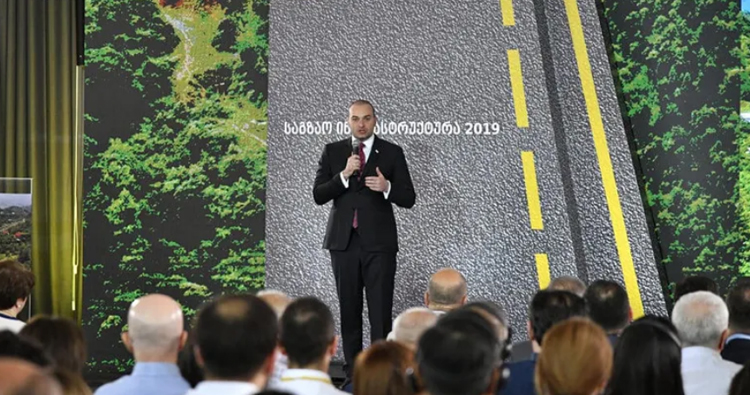Georgian PM on country’s roads: “we are implementing projects of historic significance”

PM Bakhtadze claimed that all major road infrastructure projects will be developed by 2022 in Georgia, as formerly promised. Photo: IPN.
Georgian Prime Minister Mamuka Bakhtadze has summed up the past six months of development work on Georgia’s road system, noting that the development of road infrastructure is the priority for the government.
[There are] three reasons for this: first, we want to use the transit and tourist potential of our country; secondly - we want to reduce travel time and make [transportation] more comfortable and safer; and thirdly – this is an effective way to fight against poverty”, said Bakhtadze.
Bakhtadze claimed that all major road infrastructure projects will be developed by 2022 in Georgia, as formerly promised.
We are implementing projects of historic significance and I will only single out two of them today. One is a highway on the Rikoti Pass, the construction of which has already been started … and the second is the Kobi-Gudauri highway. An agreement will be signed in the coming days and construction will be launched by the end of this year”, said Bakhtadze.
He said the Kobi-Gudauri cable car is one of the most important infrastructure projects implemented recently in Georgia that “revived Kobi and brought new life” to the village.
- Famous Georgian Gudauri resort expanding: Kobi-Gudauri cable car first link in chain of improvements
Bakhtadze said that along with the development of the highways it is also important to build secondary roads so that all villages and settlements in Georgia can be easily reached.
We are building roads in many regions and villages in Georgia where the roads have never been built before. Today we are building 140 km worth of highway and repairing 500 km worth of roads… we have increased this year’s budget for infrastructural development by 20 per cent that allows us to have higher performance rates by the end of this year”, Bakhtadze said.
Bakhtadze also said that attention will be paid to firm up infrastructure on the coast, noting “we have an obligation to attract more investments in this field.”
 Tweet
Tweet  Share
Share